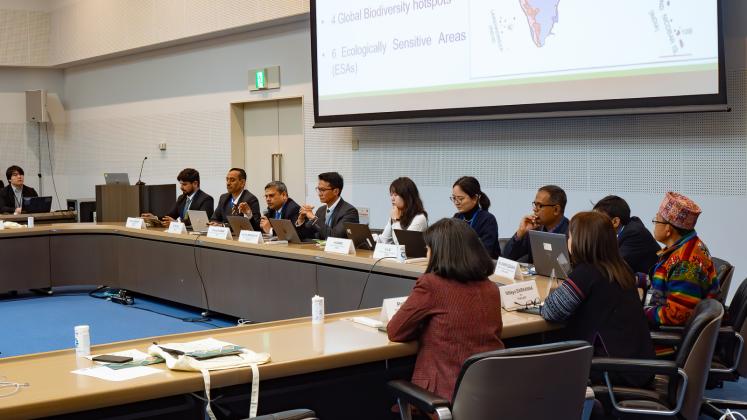On 23–26 January 2024, the Regional Dialogue on National Biodiversity Strategies and Action Plans (NBSAPs) for South and East Asia was held in Tokyo. The event brought together experts and government representatives to discuss common challenges and opportunities in updating and revising their NBSAPs. It was organized by the Secretariat of the Convention on Biological Diversity (SCBD) and co-hosted by UNU-IAS and the Ministry of the Environment of Japan (MOEJ).
In a video address, David Cooper (Acting Executive Secretary, SCBD) introduced the historic Kunming–Montreal Global Biodiversity Framework (GBF), which sets out an ambitious agenda towards living in harmony with nature. Noting the urgent need to translate these ambitions into actionable plans, he stressed that the dialogue provided an opportunity for countries to share their experiences and good practices in further developing NBSAPs.
Emphasizing that NBSAPs were critical for the implementation of GBF, Takao Shiraishi (Director General, Nature Conservation Bureau, MOEJ) noted that the Asia-Pacific region had a long history of sustainable use of resources and biodiversity conservation. Shinobu Yume Yamaguchi (Director, UNU-IAS) introduced the International Partnership for the Satoyama Initiative (IPSI), a global partnership working to realize societies in harmony with nature, whose secretariat is hosted by UNU-IAS. She stressed that the landscape approaches promoted by IPSI could be highly effective when incorporated into NBSAPs.
As part of the dialogue, UNU-IAS held a special event highlighting the work of IPSI including revitalization and sustainable management of socio-ecological production landscapes and seascapes (SEPLS) around the world. Rina Miyake (Programme Coordinator, UNU-IAS) presented IPSI research and policy contributions including the Satoyama Initiative Thematic Review (SITR) — an annual publication series disseminating knowledge and policy recommendations based on IPSI case studies. André Mader (Programme Director, Biodiversity and Forests, IGES) provided an overview of the recent publication Using Landscape Approaches in National Biodiversity Strategy and Action Planning, produced by UNU-IAS and IGES. He explained that landscape approaches were inclusive and integrated ways to manage land and sea ecosystems, which acknowledge the complexity of human–nature interactions.
Participants exchanged views and insights on the relevance of landscape approaches to implementation of biodiversity plans in their country contexts. Discussion highlighted the importance of meaningful youth participation and the need to increase policy coherence across sectors to integrate landscape approaches into NBSAPs.
Background
This event was part of a series of dialogues convened by the CBD Secretariat in 2023 and 2024 to share experiences and facilitate mutual learning for updating and revising NBSAPs, including national targets, in alignment with the GBF.


